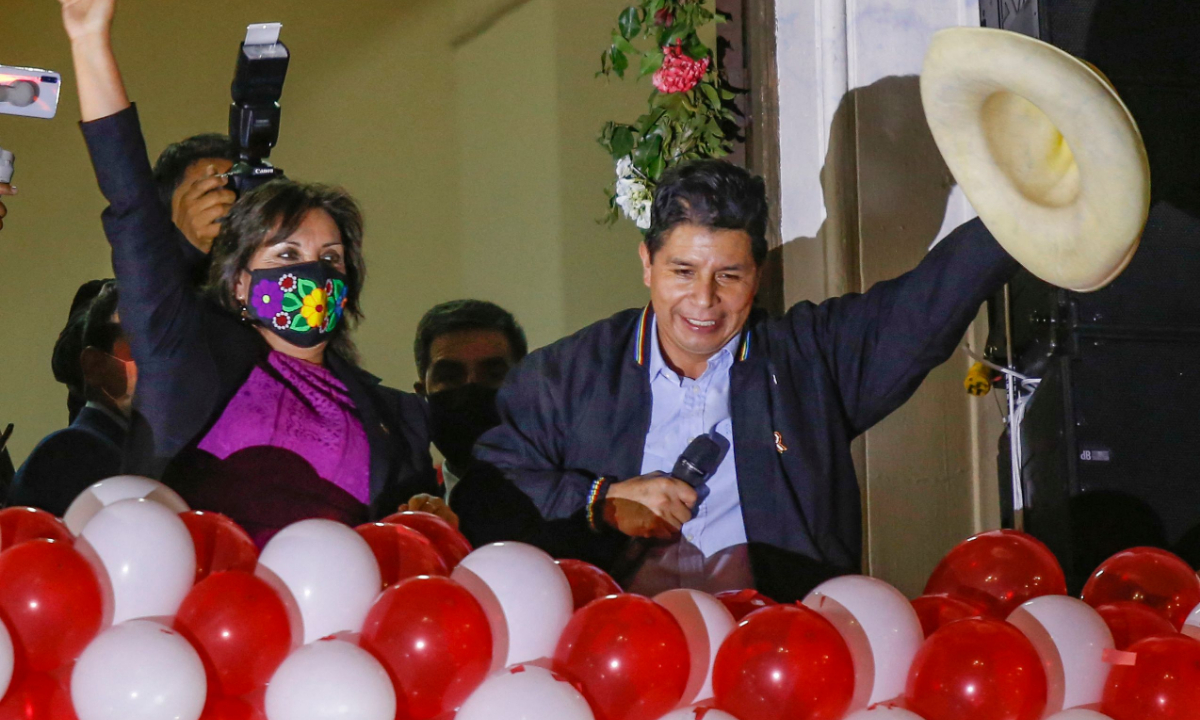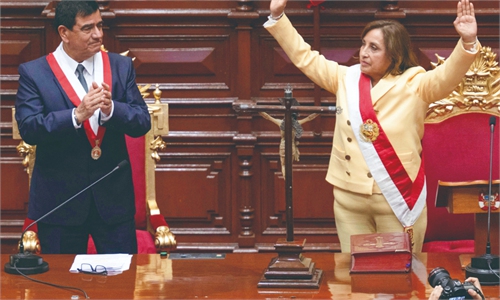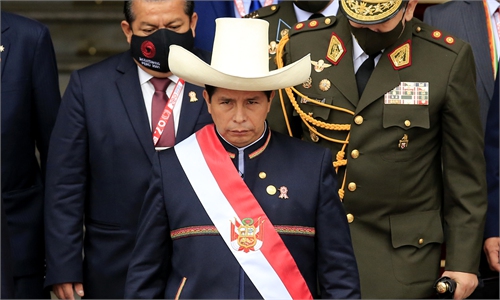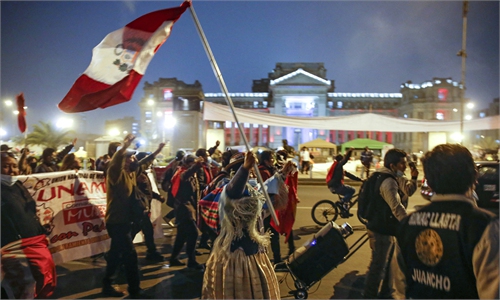
Elected Peruvian President Pedro Castillo (R) and Vice-President Dina Boluarte greet their supporters during a celebration at the Peru Libre headquarters, following the ceremony in which their received their credentials for the 2021-2026 period in Lima, on July 23, 2021. Photo: VCG
The Mexican government granted asylum to the family of former Peruvian president Pedro Castillo because they requested it from inside the Mexican Embassy in Lima, Peru, Mexican Foreign Minister Marcelo Ebrard announced Tuesday.
The official explained during President Andres Manuel Lopez Obrador’s daily press conference that when asylum seekers are in one of Mexico’s embassies, “we grant them asylum,” because “it is Mexico’s independent and sovereign decision.”
Ebrard added that after granting asylum, Mexico will negotiate with Peruvian authorities the family’s safe conduct so that they can leave Peru for Mexico if they wish to do so, stressing that “they are in Mexican territory since it is our embassy.”
Asylum for Castillo’s wife and children was approved by the Peruvian Foreign Ministry on Monday, but no approval was granted for the former president, who has been imprisoned since December 7.
Castillo dissolved Congress on that day, which was followed by the legislative body impeaching him and swearing in vice president Dina Boluarte as the country’s new president.
Castillo said in early December that an impeachment motion approved by the opposition-led Congress “is part of the political game” against him.
Castillo made his remarks in the northern region of Cajamarca, where he voted during the second round of elections that have been taking place in nine regions of the South American nation.
Xinhua



